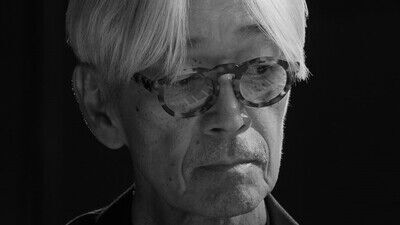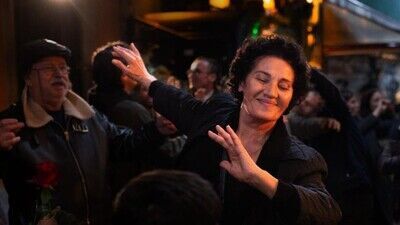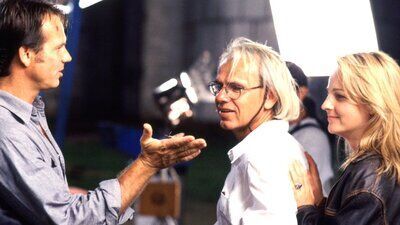“Ryuichi Sakamoto: Opus” is an hour and forty minutes of just that: Sakamoto playing. There is no introduction. There are no interviews. Sakamoto does not instruct the director, Neo Sora, on how to play the pool variant “Cutthroat” as Rick Danko did for Martin Scorsese in another farewell concert film, “The Last Waltz.” It’s just Sakamoto and the piano. An out-of-focus blur at one point suggests a crew member adjusting something. The composer and pianist mutters something after he loses the thread of one piece. We don’t see who he’s talking to, or maybe we do, because he’s likely chastising himself. At one point Sakamoto gets up and puts alligator clips on certain piano strings to create a desired effect. John Cage coined the term “prepared piano” for this sort of thing. Sakamoto was a modern musician, but he wasn’t quite a postmodern one even if he did dip into postmodern technique every now and then.
There’s a certain amount of repetition in his work and watching him play—the camera often shoots him from the side, in a medium shot, so you see his facial profile and his hands working the keyboard—you appreciate how he built his compositions. A theme will be stated with the left hand, and it will be stated for a while—eight bars, maybe more—after which the right hand will add harmonic complexity to said theme. Then the right hand will stroll off on a melodic journey. The mantra-like power of the theme will stay put.
These themes are often dreamy, romantic. They recall Debussy, sometimes Satie. Sometimes during this film you think that Sakamoto was surely Japan’s greatest early 20th century French composer. But that’s glib. The man’s music was open and tender, and his playing here has a vulnerability that comes from a place that’s all too real. His silver fringed hair, parted in the middle sometimes falls on his face as he plays, flopping in front of his round tortoise-shell spectacles. Sakamoto was a pop star with the Yellow Magic Orchestra in the early 80s; he worked not infrequently as an actor, appearing in Bertolucci’s “The Last Emperor” and Oshima’s “Merry Christmas, Mr. Lawrence,” films for which he also wrote the music (he plays their themes here). He was always an immaculate looking man and here he is literally in the process of becoming an icon for real.







Leave feedback about this